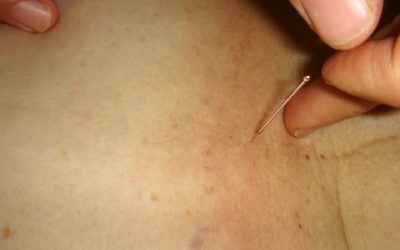Ross River Fever is a virus disease that is contracted by a mosquito bite. Contrary to popular belief, this virus is not confined to the northern parts of Queensland but has been diagnosed in people in other parts of Australia, e.g. New South Wales, Victoria and Western Australia. It is more prevalent in rural and regional areas where mosquitoes are more likely to breed in swamps, lagoons and slow-moving water.
Ross River Fever is a de-energising disease – sapping people’s energy very quickly, even draining energy from people who have been previously very active and engaged in sporting activities. One of the long-term effects of this disease is depression as people try to cope with their inability to be active when they have previously led very active lives.
People who suffer from this disease report night sweats, fever, muscle aches and pains, severe headaches, inability to sleep and constant fatigue and dizziness. Many patients who have been diagnosed with Ross River fever also report ”brain fog” – an inability to focus and constant “cloudy thinking”. Some sufferers have even reported accidents resulting from this condition of the brain.
A contributing factor to “brain fog” is the constant pain people experience with the disease. For some people, even getting out of bed is a painful experience. Inertia and a tendency to chronic fatigue can contribute to an overwhelming sense of frustration and depression as all efforts to remedy the disease appear to be ineffective.
One of the problems with the Western Medicine approach to the disease is that doctors tend to treat the symptoms separately rather than address the underlying causes of the disease which they do not understand. Despite doctors’ assurances to the contrary, many people report the recurrence of Ross River Fever and their suspicions have been confirmed by medical tests.
One of the advantages of using acupuncture for the treatment of Ross River fever is that an acupuncturist adopts a holistic approach to the disease and wellness overall. The acupuncture approach looks for causes of excessive heat in the body (fever symptoms) and works on energy meridians to restore the body’s energy balance which is drastically disturbed by the virus.
Associated with this holistic approach of acupuncture is an emphasis on building the immune system of the body to fight the disease through the body’s own healing powers. Initial outcomes from acupuncture treatments can be the reduction in pain and improved ability to sleep which, in turn, enables the body to restore its equilibrium.
If Ross River Fever is left untreated, the condition can worsen severely and leave a person totally incapacitated with people reporting the inability to use specific parts of their body (e.g. arms or legs) and mental deterioration through exhaustion and relentless frustration.
Acupuncture which works with the natural energy flow of the body and its inherent healing powers can redress the symptoms of Ross River Fever over time. Depending on how far the disease has progressed, recovery can be slow or fast. Early intervention is encouraged to forestall the compounding effect of the symptoms of Ross River Fever.
The slow, sure approach of acupuncture can build confidence and hope in the patient who is experiencing this debilitating disease. The natural healing approach of acupuncture is a logical solution to offset the breakdown of the normal functioning of the body and the disequilibrium caused by the disease. As symptoms abate and confidence grows, patients tend to accelerate their own healing through seeking adequate rest, reducing stress in their lives, becoming more active and adopting a positive mental attitude. Acupuncture, then, enables a person suffering from Ross River Fever to enter the path to recovery from this debilitating virus disease.




